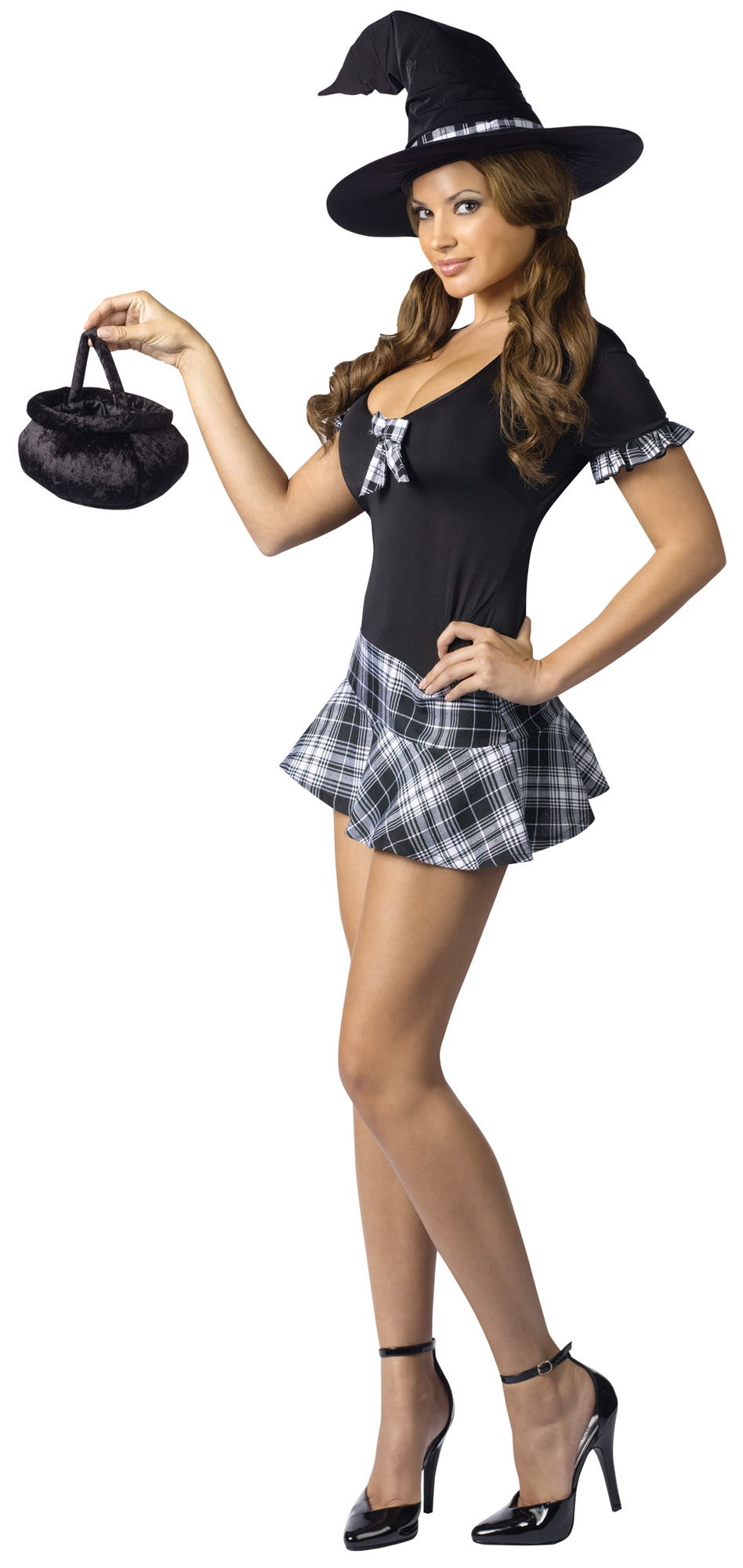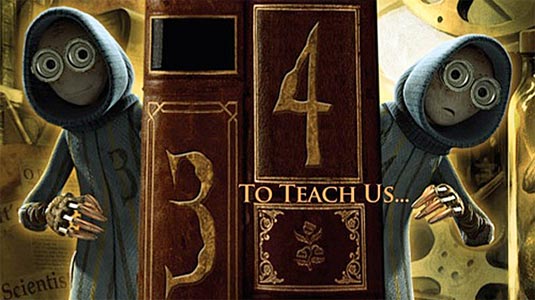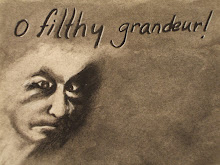I just returned from viewing the shitfest that is The Last Airbender, and my quick reaction to it is as follows: this movie seems to be done with such lack of care and detail that it views like Mr. Shyamalan heard about the popular cartoon show from a friend, and decided to make a movie based on a second-hand description. "Oh, so the brother and sister find this kid frozen in ice, and then they go to some temples, and some Earth Kingdom villages, and then the North Pole? Oh, yeah, let's throw in that flying buffalo thing...and the lemur too, I guess."
Okay, now to the longer complaints. First, the racebending, which, if you haven't heard, is the most obnoxious fucking thing about this horrible movie. What we have is an entirely Asian world. What Shyamalan has given us was a cast of white people in leading (good) roles and brown people as side characters and bad guys. One of the arguments that racist defenders of this casting will cite is that perhaps the white actors that got the parts did better than the other people who auditioned (like Asian kids!). Yeah, except that the casting call for the part of Aang called for a "caucasion" male. After having viewed the movie myself, I find it hard to believe that there is not one Asian actor who can out-act any of those awful white kids. Noah Ringer was somewhat passable--I mean, I'll give these kids some slack--the dialog just sucked big time, but nonetheless it wasn't as if any of these kids brought anything unique to their roles. Seriously, white Sokka didn't even need to be in this movie. He was just some white dude hanging around that occasionally felt the need to protect some ladies.
Shyamalan has responded to some of this legitimate criticism to his casting fail. This one's my favorite:
Here’s the irony of the conversation: The Last Airbender is the most culturally diverse movie series of all time. I’m not talking about maybe one Jedi, maybe one person of a different color – no one’s even close. That’s a great pride to me. The irony of this statement enrages me to the point of … not even the accusation, but the misplacement of it. You’re coming at me, the one Asian filmmaker who has the right to cast anybody I want, and I’m casting this entire movie in this color blind way where everyone is represented. I even had one section of the Earth kingdom as African American, which obviously isn’t in the show, but I wanted to represent them, too!
And I fought like crazy to have the pronunciation of the names to go back to the Asian pronunciation. So you say “Ahng” instead of “Aaang” because it’s correct. It’s not “I-rack,” it’s “ee-Rock.” I’m literally fighting for all this. And who’s getting blamed? ME! This is incredible. And so it’s infuriating, this stigmatization, that the first word about the most culturally-diverse movie of all time is this accusation. And here’s the irony of it, this has nothing to do with the studio system. I had complete say in casting. So if you need to point the racist finger, point it at me, and if it doesn’t stick, then be quiet.So...pronouncing names the correct Asian way makes up for those names belonging to characters portrayed by white actors? And you're not racist because you're Asian and you're so aware of diversity that EVERYONE gets to play Asian dress-up? Yeah, not buying it. Shyamalan's sense of diversity doesn't even make sense: white kids as Inuits alongside brown Inuits in an isolated part of the (Asian) globe. Um. What?
I'm sure there are those who would have defended Shyamalan's utter race fail had this movie had even the tiniest entertainment value. But, lucky for us, there is none! I went into the theater tonight really hoping that the movie would at least feed my inner fandom. But, as I stated at the beginning of this post, it really seemed like Shyamalan never even saw the show. There were just so many beloved elements missing in this movie. I was aware going in that nothing good could really come of a movie cramming 20 episodes worth of events into an hour and a half long movie (which is quite short for movies of this type, but nonetheless felt like an eternity.)
It's hard not to compare this movie to the cartoon, but it's especially sad when the movie doesn't even do the cartoon an ounce of justice. All the movie characters are loosely based on the cartoon ones because Shyamalan exchanged important things like plot and character development for special effects. In the cartoon, Aang is an almost typical 12-year-old boy, who has to constantly do grown-up things. He's fun-loving and adorable, but when he's angry or grieving and falls into the Avatar state, we are angry and grieving with him. The Aang in the movie was a 12-year-old boy whose eyes glowed occasionally when he did some really serious martial arts moves. Katara in the cartoon is fearless, her love and protectiveness for Aang is endearing, and her skill as a waterbender is underscored by her ambition. She believes in Aang, but she also believes in herself. The Katara in the movie does magic with water sometimes, inexplicably follows Aang around, and is overall pretty dull. I mean, in the cartoon the reason she's excited to meet Aang in the first place is because she's never met another bender before, and they go to the North Pole so she can learn waterbending from a Master--yes, she likes Aang, but with his flying bison (which was horribly underused in the movie--"We haven't seen Appa in awhile, let's throw him in this scene for no reason") she has the ability to go across the world. As for Sokka...well, he was essentially a prop. The only reason we even knew he was Sokka was because people were calling him "Sokka." Where's the sarcasm? Where's the leadership? Oh who cares? Look, special effects!!!!!!!!!!!!!!!!!!
Zuko was similarly horrifically disappointing. I really did like the idea of Dev Patel playing him, but with an already horrible script without significant character development, I didn't really care about him like I was made to in the cartoon series. My favorite part of Zuko in the show, and his uncle Iroh by extension, was how sympathetically he was portrayed. In most of the series, he's simultaneously the bad guy and a good guy. We understand him. We understand his ambitions and the motivation for those ambitions (or, rather, obsessions). Zuko and Iroh both lost something they cherished, both sticking together in their banishment, both having lost their honor in some way, and both wanting to reclaim it: Zuko by presenting his father with the Avatar, and Iroh by accepting the blessings in life, even if they aren't what he thought they should once have been. In the movie, we know how Zuko was scarred, we know Iroh lost a son, but it's not developed enough to make the viewer really feel for these characters. For mere seconds Zuko and Iroh do something "good," but that's not enough. Shyamalan did a great disservice to the cartoon by creating this movie, where plot and characterizations are just mashed together into something that takes a backseat to the special effects. Special effects, while visually stunning (when done right, and trust me, the ones in this movie were not done right) are no substitute for the audience being able to empathize with the characters, even the bad ones as the series intended.
Here are a few other complaints:
- Who the fuck gave the okay on this script? Doesn't anyone know how to get these flat characters to interact with one another? Oh, guess not. See why character development is so damn important? It helps you figure out how the dialog should go. At least the series had the dialog right. There were some episodes that left me with chills, and with others I was so moved I was crying. That's how you fucking do it.
- Shyamalan apparently also has no concept of distance: Zhao was able to travel back and forth to talk to Fire Lord Ozai in what seemed like short amount of time. Does Shyamalan realize it takes quite some time to travel by ship? I'm guessing no. I'm also guessing that Zhao didn't have messengers or something.
- The earthbenders were disappointingly underused. In the series, their fighting style was always my favorite, and it was such a disappointment to only see them for one short scene. I know I know. This was Book One, which is Water, but still! And, again, Shyamalan clearly does not understand the series at all, because that scene depicted the earthbenders being imprisoned, not on a metal ship away from land, but in a compound full of (you guessed it) earth! That just doesn't work in that sense. In the series, the earthbenders despair because they have lost the means to bend. They do not fight because they are in a hopeless environment. In the movie, they're all "Oh, the firebenders got us. We're done..." THEY ARE SURROUNDED BY EARTH. The plausibility of their giving up just doesn't work here.
- The female agency was totally removed. Central to Katara's characterization in the series is her desire to act. She's the one who initially releases the iceberg containing Aang. In the movie, it's Sokka just hitting the ice. And (back with the earthbenders) in the movie it's Aang who gives a speech to boost the spirits of the earthbenders, and they eventually start bending. In the series, it's Katara on the ship without Sokka or Aang. She tries to speak to the earthbenders, they are in despair. They do not fight. So Katara, with the help of Sokka and Aang, give the earthbenders not only the hope required to act, but also the means. They're not just sad and surrounded by earth. In the series, it actually illustrates how the earthbenders need Katara.
- I know this one seems like a stretch, especially for someone who doesn't already understand characterization in humans, but Appa and Momo are also characters in the series. Significant ones. Not just CG animal props you can trot out every couple of scenes cuz OMG THE EFFECTS. Fuck.
- I'm sorry, but Aasif Mandvi just wasn't badass enough to pull off a good Zhao. I mean, he has the whole douchebag thing down, but was lacking in believable ruthlessness.
- This was Zuko's scar? Really? Come on.
- It really didn't seem like Shyamalan understood the Avatar's world. Firebenders can bend fire without their being a fire nearby. Zuko demonstrates this by melting the ice underwater. Yet everyone shits themselves when Iroh makes "fire from nothing!" That's what a firebender is. Watching five minutes of the show would tell you that. There's no doubting that Iroh is a powerful firebender, but this was just lazy. And while I'm complaining about that inconsistency, when Katara is fighting Zuko, why didn't she just put out the fires? Because firebenders (apparently) can't firebend without it, and Zuko set fires prior to the fight which he (apparently) needed. Except firebenders don't need to do that.
- SPOILER ALERT: If you want to see an amazing climactic battle at the North Pole, I recommend watching the two episodes at the end of Book One, because the battle in the series was much more dramatic, engaging, and...well, good. The movie version? Well, I'll tell you: Aang's eyes get all glowy. He waterbends a huge ass wave. But then makes it go away again after a painfully long build-up. The Fire Nation ships high-tail it out of there. Because waves that don't do anything are scary as shit. Battle over. I think I screamed "WHAT?" in the theater at this point, annoying some of my fellow audience members. But seriously. WHAT???? In the series, Aang, angry at the invasion, angry at the murdering of the moon spirit, loses control and enters the Avater state, becoming a giant water monster spirit thing and DESTROYS THE FIRE NATION INVADERS. All of them. Ships too. Oh, and meanwhile, Zuko and Zhao have an awesome fight that was omitted in the movie. Their fight is interrupted by the moonspirit seizing Zhao, and Zuko attempts to save him, but Zhao refuses to take Zuko's hand. So he dies. Not by a bunch of waterbenders, as in the horrible movie.
If I missed anything important, please let me know in the comments. Meanwhile, I'll be re-watching the series in an attempt to forget the swill that Shyamalan dared call The Last Airbender.



















